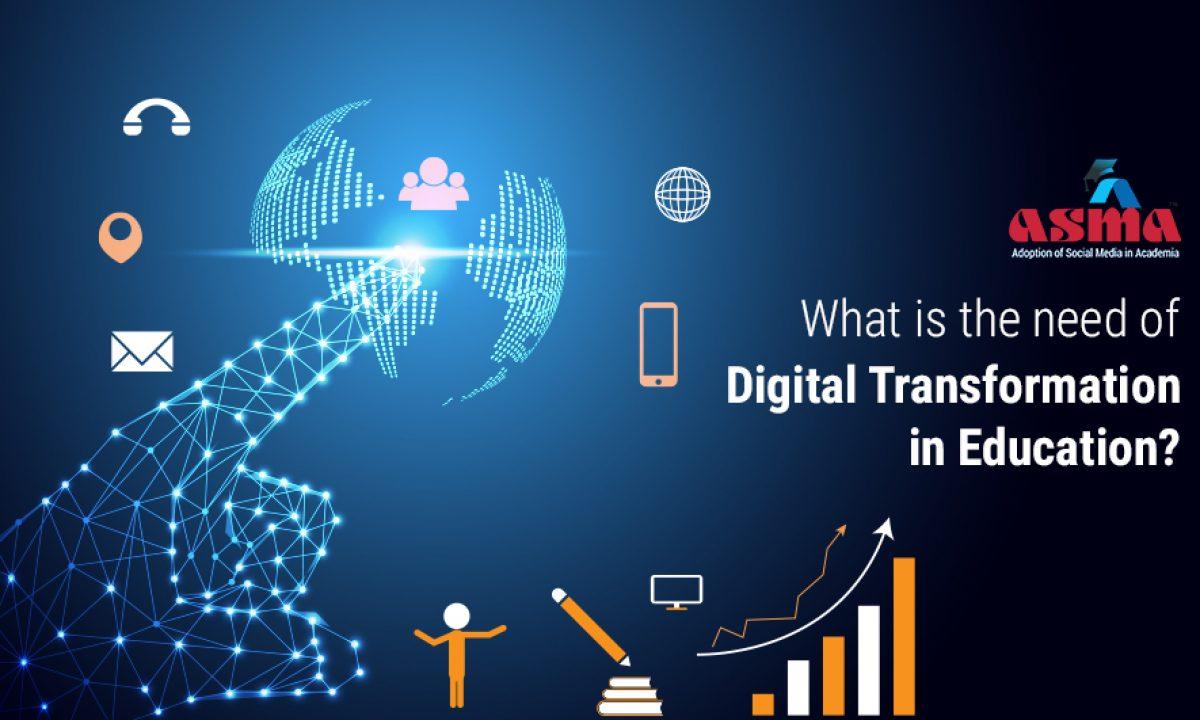Inquire
What Is The Need of Digital Transformation in Education?

Extensive use of digital assets is changing the needs of modern learners. They are constantly looking for learning opportunities beyond the traditional classroom-based approach. To counter the situation schools and colleges need to develop alternative models of teaching for imparting education.
With the growing penetration of technology in our lives, there is a rising need for adapting digital technologies in the education ecosystem. Digital transformation in education can enhance the traditional face-to-face learning environment. It can enable teachers to innovate pedagogical models for creating better connect with students.
Today, most of the students are hooked on to a virtual world through the internet and smartphones absorbing a lot of content online. Schools and colleges are left with no choice but to adapt to it. Gone are the days when education was the prerogative of a chosen few. Technology has provided a level playing field for students from all sections of society. Constant technological progress with the growing popularity of social media and the Internet of Things (IoT) is driving the educational ecosystem.
As an imperative of social inclusion, there is a growing need in schools and higher education institutions to provide affordable and accessible models of education transformation to a wider variety of students. Some universities and EduTech companies have already started innovative virtual learning models by offering free online courses and certification programs.
While the course curriculum is an ever-evolving area based on current and future trends, teaching-learning methodologies is a specialized domain where experiments and innovations are particularly needed. At this juncture, technological interventions can add a lot of value to current pedagogical practices.
Digital transformation in education can enhance instructional learning, especially in higher education by creating a blended learning experience that combines both traditional classroom-based methods and modern technology.
Another important advantage of the digital transformation in education is in the management of education itself. Digitalization can help in automation of academic administration and other back-office operations in admissions, placement, alumni relations, student support services etc.
Every year, academic institutions face a tough task of submitting institutional data to several ranking and accreditation agencies. They have to depend upon a lot of manual work for compiling information from concerned departments. This can be overcome by implementing a robust management information system. Adoption of ERP system (Enterprise Resource Planning) can optimize academic productivity.
Digital interventions can help schools and higher education institutions to manage relationships with students, parents, alumni, teachers and other interest groups more efficiently. Digitalization of academic support services can further help to manage and monitor systems and processes more effectively. This will result in streamlining of administrative activities in schools and colleges.

- Managerial Effectiveness!
- Future and Predictions
- Motivatinal / Inspiring
- Other
- Entrepreneurship
- Mentoring & Guidance
- Marketing
- Networking
- HR & Recruiting
- Literature
- Shopping
- Career Management & Advancement


 SkillClick
SkillClick